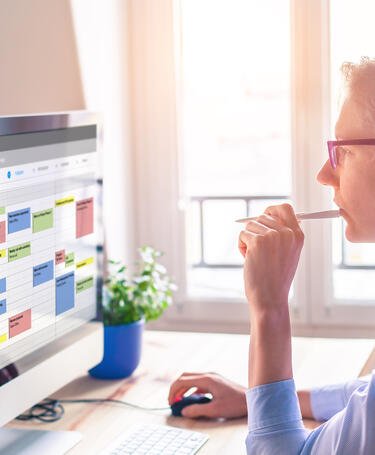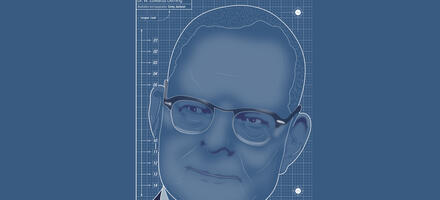
Legacy of Covid-19 for the audit profession
Progress indicator

It is nearly four years since the Covid-19 pandemic significantly altered the way in which we work. Senior Auditor Pedro Mejias takes a look at the pandemic’s legacy on remote audit.
The Covid-19 pandemic made us rethink and reconsider many aspects of our working lives. Probably the most important of these was face-to-face work; as a result of the pandemic, remote working emerged.
In the sphere of auditing management systems, remote working had always been considered a possibility. However, force of habit ensured that the on-site execution of an audit remained overwhelmingly dominant.
The execution of remote audits grew during the pandemic because of lockdowns around the world. Nearly four years on from the start of the pandemic, we can now evaluate what changes had to be made to audit remotely, and how auditors continue to ensure that an effective, coherent and, above all, profitable evaluation process occurs for the auditee.
When implementing a remote audit, it is necessary to consider specific aspects that define the type of activity that can be carried out when not physically on site. This includes the nature of the business under audit, the level of criticality of the information handled, the evaluation scheme, the standard of requirements, and the availability of good communication channels. Auditors must then decide whether an audit can be carried out remotely, in a hybrid manner, or if it is not possible to audit any aspect remotely.
Below are some lessons learned from the experience of moving aspects of an audit to a remote process.
Auditor experience
Auditors faced with executing a remote audit must have previously carried out on-site audits at that organisation, to fully understand the aspects to be evaluated. They must know which are the most critical points of each type of organisation and the standard of requirements, in order to facilitate its remote identification. The experience of carrying out a remote audit is not an activity for an auditor who is not already familiar with the organisation.
Online communication channels
During the pandemic, we all got used to screens freezing at critical moments. To avoid this during an audit examination, ensure sufficient communication channels are open so there are options should one fail at a critical moment.
"What we have learned since March 2020 is that it is up to individual audit professionals to learn to identify, manage and improve the tools, mechanisms and techniques to carry out this type of audit in an effective, transparent and balanced manner, to ensure they perform an activity that adds value to the organisation being evaluated."
Management of emotions
An audit can be a nerve-wracking experience for the auditee. If the process is not being carried out face to face, it is important to factor in these heightened emotions. Any concerns should be addressed at the opening meeting and must be adequately managed during the evaluation by the auditor, as the owner of the process.
Time management
Remote audits require a stricter adherence to the defined audit plan, as the facilities for access to information, or the time windows in which the auditees can attend to the process, are more restricted. This forces them to ask more precise questions and to select the documents to be reviewed more concisely, factoring in that additional time may be required for the digitisation and electronic delivery of a document.
Access to information
Confidentiality of the information handled during an audit is one of the basic aspects of this process. Before carrying out an audit, it is necessary to establish the degree of confidentiality and sensitivity of the information to be reviewed, as well as the channels through which it will be shared – for example, emails, instant messages, video calls, etc. Once the sensitivity of the information has been considered, it may be decided that a hybrid audit process is the better method.
Virtual tours
One of the activities in which the remote nature of the audit is most evident is the virtual tour. Generally, these are carried out using a mobile-phone video camera, which becomes the remote eye of the auditor. This is the most common practice to carry out reviews of manufacturing plants and warehouses, select samples, evaluate physical conditions, or to ask for a certain condition. In this activity, the contrast between what the auditor wants to see or review, and what the auditee wants to show, is more evident and it is hard to mitigate the impact of this.
Summary
The arrival of the Covid-19 pandemic served as a reminder that it is possible to carry out remote audits. What we have learned since March 2020 is that it is up to individual audit professionals to learn to identify, manage and improve the tools, mechanisms and techniques to carry out this type of audit in an effective, transparent and balanced manner, to ensure they perform an activity that adds value to the organisation being evaluated.
Adding value to audits of management systems
Read more from senior auditor Pedro Mejias, as he outlines five ways in which the audit process can create value to the auditee.
Quality World

Get the latest news, interviews and features on quality in our industry leading magazine.
The International Quality Awards 2024
This year's awards span eight categories, celebrating the achievements of exceptional quality professionals and auditors across the globe.


